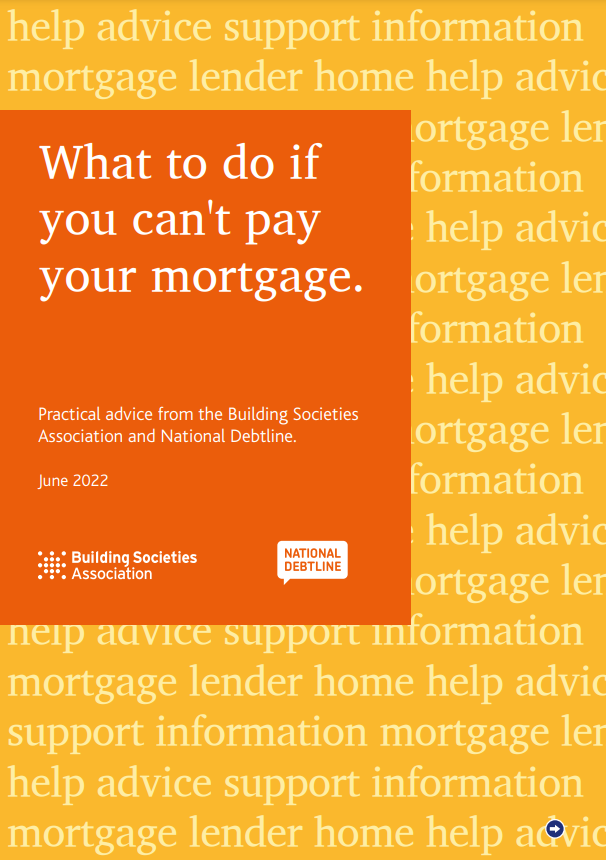How can you help those who are struggling to pay their mortgage?
A booklet from the Building Societies Association and Money Advice Trust, 'What to do if you can't pay your mortgage', sets out six practical steps to help households who are struggling to keep up with their mortgage payments during the cost of living crisis.
 The rising cost of living is stretching many households’ finances, with some, who have no savings to fall back on, struggling to meet the increased costs of essentials such as food and energy. This can lead to some families having problems meeting their regular bills, including their monthly mortgage repayments.
The rising cost of living is stretching many households’ finances, with some, who have no savings to fall back on, struggling to meet the increased costs of essentials such as food and energy. This can lead to some families having problems meeting their regular bills, including their monthly mortgage repayments.
It has never been more important for households to have access to the right advice and information. With this in mind, the Building Societies Association (BSA) and the Money Advice Trust have a helpful booklet giving simple, straightforward guidance on what to do if people can’t pay their mortgage or think they might struggle to make their payments in the coming months.
Despite what some people believe, telling a mortgage lender about any problems paying a mortgage does not mean they will start to repossess their home. Lenders are very sensitive to the rising number of people facing a squeezed household budget, and have teams who are well trained and experienced in providing tailored support to those who are struggling.
Anyone who is worried about their finances and ability to pay their mortgage should therefore get in touch with their lender as soon as possible. They will provide a safe space for a confidential, non-judgmental chat and will do everything possible to help each borrower with options based on their own personal circumstances. The earlier a lender knows that there is a problem, the greater the chance of finding a solution that helps keep a family in their home.
The booklet – What to do if you can't pay your mortgage – covers information on the six steps people should take to ensure they get the best support. These are:
- Contacting their lender early
- Assessing their situation by creating a budget
- Keep in contact
- Showing their lender they’re willing to pay what they can afford to
- Exploring all options
- Taking advice from trusted sources, such as National Debtline
The booklet also explains what someone should expect when contacting a lender, the role of debt advisers, and a section on where to turn for further help and guidance.
Along with guidance on what to do if facing financial difficulties, the booklet also dismisses some of the ‘urban myths’ associated with having mortgage repayment difficulties. It is available for free from the BSA website and will also be made available to people seeking advice from National Debtline and Business Debtline, the free debt advice services run by the Money Advice Trust.
As the cost of living continues to stretch household budgets, this could be a useful booklet to have to hand when holding your constituency surgeries.
